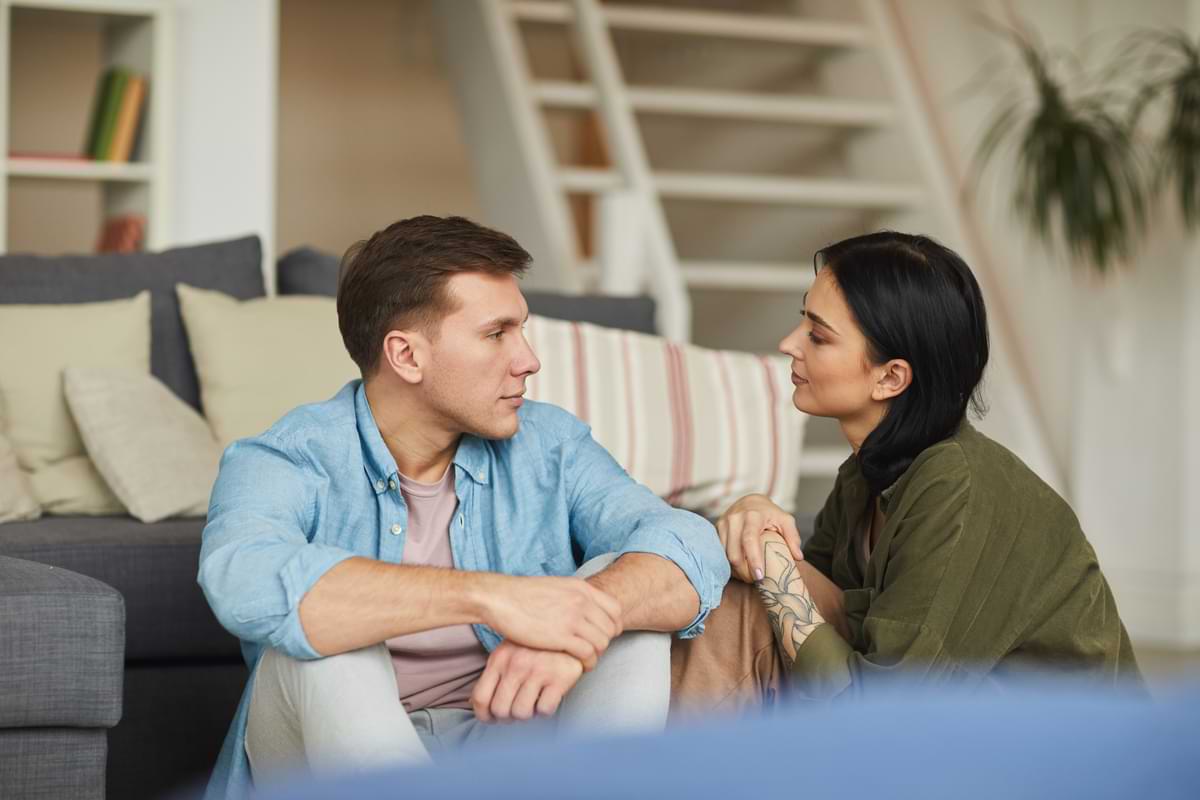

 A couple talking deeply, one apologizes to the other. By SeventyFour / iStock.com
A couple talking deeply, one apologizes to the other. By SeventyFour / iStock.com
We each possess a magical power to live a better life, but many don’t recognize its potential. This magic can stop a three-hour-long conflict before it begins. I bet every reader would pay a lot to learn that skill. We’re sharing it for free. Of course, that ability is apologizing. Here are five reasons to apologize:
Let’s focus on how apologizing helps avoid conflict, starting with a personal story.
Many years ago, near the beginning of our marriage, my wife and I had dinner with a group of friends. Apparently, for nearly the entire evening, I turned my back to her while talking to the rest of the table. I often turn social gatherings into “teaching opportunities,” i.e., chances for my attention-seeking.
As we left the dinner, she expressed how it made her feel unimportant. She thought I had been insensitive and made the event about me at her expense. To top it all off, she told me it was a pattern.
I felt offended and unfairly judged. I thought I did a lot of things so well as a husband. With all the positives, rather than being grateful and appreciative, she was being overly sensitive. What did she know about my motives? Did she think I was an uncaring man who would intentionally belittle her?
You can imagine how it went after I expressed those thoughts. A conflict ensued. The evening was ruined, and it had been such a wonderful date–or so I had thought.
A couple of decades later in our marriage, we know we handled it poorly–especially me.
Then, I learned the magical power of apologizing and added “I’m sorry” to my relational toolkit. About a year later, the exact same scenario happened (maybe even at the same restaurant).
I don’t think she did anything differently. Again, she communicated her hurt feelings, and again, I interpreted it as criticism. (Now I know that she probably meant it as consultation.) This time, rather than attacking her to defend my pride, I apologized.
When I ask people why they didn’t apologize in a particular situation, the most common response is: “Because I didn’t do anything wrong.”
However, an apology doesn’t necessarily mean admitting guilt. Of course, an apology can accompany wrongdoing (in that case, I recommend also saying, “I was wrong”), but apologizing simply means you admit that you hurt someone’s feelings, almost always unintentionally.
Think about it. If you mean to hurt someone, you won’t apologize (why would you?) If you intentionally hurt your spouse or friend, there’s probably something deeper going on, and a quick apology won’t cover it regardless. If you’re in a place where you and your significant other are intentionally hurting one another, consider booking a couples session with one of our trained, professional therapists.
If you were riding your bicycle and a kid jumped in front of you, and you accidentally ran them over, you would apologize. “Oh my gosh, kid… I am so sorry! Are you ok?”
Did you do anything wrong? No, but your actions caused them to be hurt, so an apology was warranted.
Even if you hurt someone while helping them, apologies are a good idea. Imagine a nurse resetting a joint! Nurses, physical therapists, and dentists probably apologize a lot. Are they in the wrong? No, they may save your life, but they are still causing pain along the way, so it makes sense for them to say “sorry.”
In the original scenario, had I intended to shoulder my wife out of the conversation? No. Had I intended to dismiss her or neglect her? No. Is it wrong to answer questions or even teach a little in a setting like that? Not particularly.
However, what I did, no matter how cluelessly or innocently, though not morally wrong, caused bad feelings in my wife. Emotionally, my actions wounded her.
How did I know that I hurt her feelings? She told me. At that point, what would I even argue?
Her: “You hurt me.”
Me: “No, I didn’t.”
Her: “Yep, pretty sure it was me and pretty sure it hurt.”
Me: “You win.”
I cannot deny her feelings. So, ask yourself, is it valuable to defend motives in a situation like this? In fact, my wife never even questioned my motives. She didn’t think I intended to hurt her, or she wouldn’t have brought it up.
She assumed I was clueless and insensitive, sure. But, wait for it – I was clueless and insensitive. Distracted, talking in 30-45 minute intervals, and paying little attention to the people around certainly sounds like something I would do.
Why do we react so strongly and negatively when a loved one points out flaws that we know we have? Life is freer when we accept our frailty and know ourselves well enough to accept an accurate description of our imperfections.
With that said, here are five steps to a good apology:
Here’s an example from that night, “Wow. I did not intend to do that at all. Really, I did that again? I am so sorry! I ran you over and didn’t listen to you or include you very well. I’ll do my best to do better next time.”
It doesn’t hurt to ask, “Do you forgive me?” especially if your actions were wrong and not just inconsiderate or accidental.
So, instead of three hours of fighting that night, she held my hand in silence (probably in a little shock). Finally, she said she appreciated me and was grateful for my listening to her, and the wonderful evening continued.
It was an entirely different outcome–magical.
I encourage you to use this powerful tool. You may be clumsy initially, and your partner or friend may accept it awkwardly.
But be patient, and try this beautiful key to a better life called apologizing.